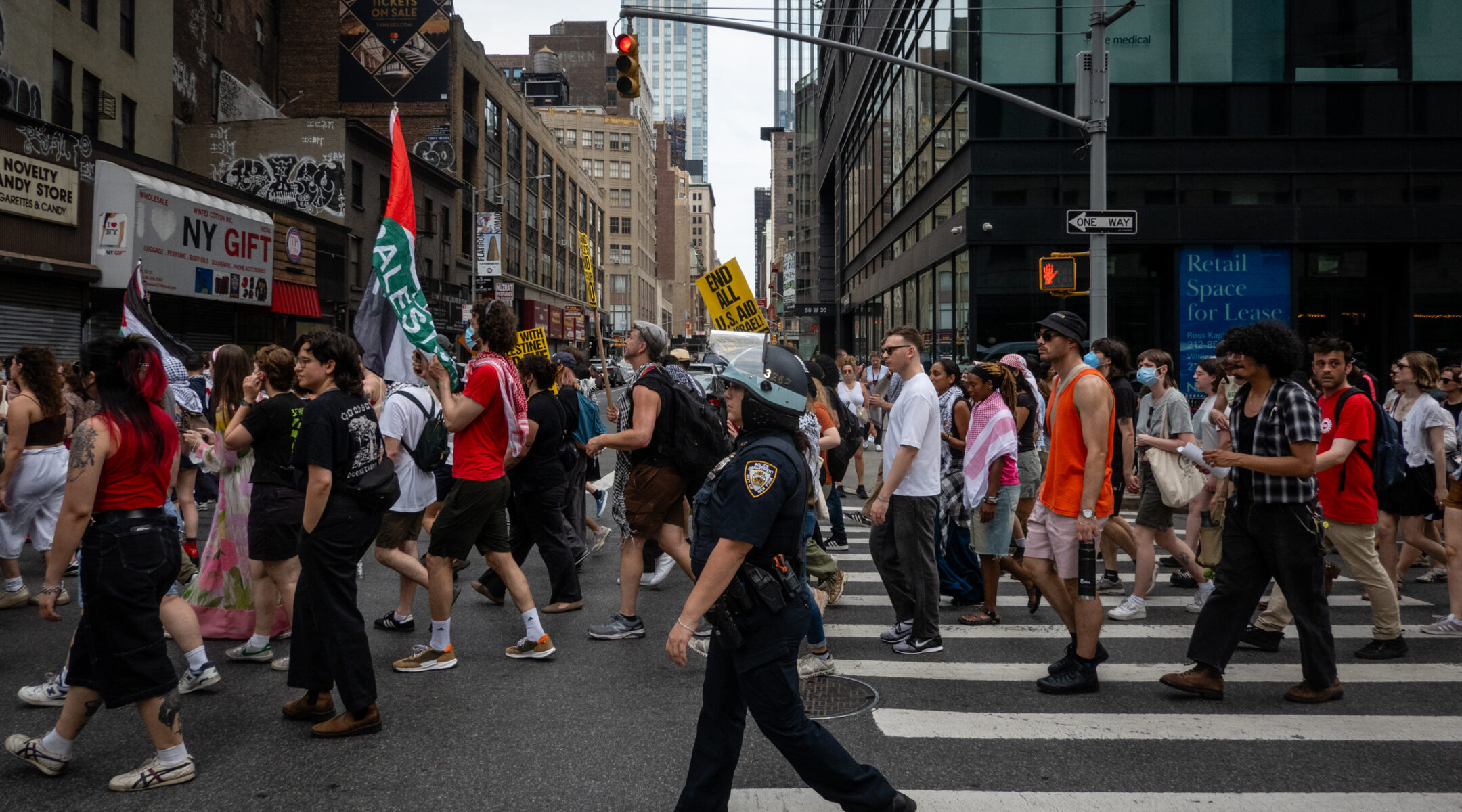The student senate at The New School voted to suspend funding for all student organizations in protest of the university’s Israel policies.
The University Student Senate at the Manhattan school said that on Friday it had voted to suspend all funding in order to demand “divestment from industries implicated in military and police violence in Gaza and the West Bank.”
The statement added, “The USS voted and passed to halt all external funding operations until the [university investment committee] votes in favor of divestment.”
At The New School, the student senate’s 12 members are responsible for disbursing funding to campus groups, drawing from an $8 per semester fee from every student to fund programs like the figure skating club and the printmaking club.
The statement did not specify how the student activists expected the university to carry out divestment.
“This is not a duty we take lightly,” the senate said. “We understand this leaves students with many questions and will provide more information soon.”
Persuading campus governments to withhold funding from student groups in protest of Israel appears to be an emerging tactic for pro-Palestinian activists, whose approaches are evolving as a new school year begins with many of their demands from last year unmet. The student government at the University of Michigan has also vowed to block funding from student groups to demand divestment.
Michigan’s administration says it will circumvent the student government if it carries out the pledge. At The New School, too, the university said it was taking responsibility for allocating the funds normally controlled by the senate, effectively nixing the senate’s decision.
To ensure continued access and support for all students on campus, we will temporarily transfer the responsibility of managing this university fee to the Division of Student Success,” The New School said in a statement. “This decision was made with careful consideration, as this fee is crucial to the work of student leaders on campus.”
The campus chapter of Students for Justice in Palestine called the move “part and parcel to the structure of z*onist violence globally,” and blamed “z*onists within the New School Administration.”
A New School university spokesperson said the board of trustees postponed a vote on divestment in June, based on a recommendation by the university’s Advisory Committee on Investor Responsibility, which said it was looking into “ways to divest from military industry and military surveillance companies.” The committee aims to provide a proposal for divestment to the board of trustees during a committee meeting next month.
Founded in 1919, The New School, which is located in Manhattan’s Greenwich Village, has a long history of radical activism. In line with that tradition, the university employed an anti-Zionist rabbinical student, Louisa Solomon, last year to serve some Jewish students.
The university confirmed on Wednesday that Solomon was no longer with the university because her one-year internship had finished.
“Student Rabbi Solomon’s engagement with The New School was intended to be temporary, and the university is exploring ways to provide students with sustained clerical and rabbinical support,” the university said.
Pro-Palestinian activism has swept across New York campuses, including the New School, since Hamas’ Oct. 7 invasion of Israel and the outbreak of the war in Gaza. Those tensions are reemerging with the start of the fall semester.
The university’s new president, Joel Towers, was repeatedly interrupted by anti-Israel protesters during his first public address last week, the New School Free Press reported.
The New School spokesperson told the New York Jewish Week that the university had been preparing for the upcoming semester since classes ended in the spring. As part of those preparations, the university is offering a new course, Socially Responsible Investing: History, Theory, and Practice, that will be open to all members of the university community for free.
“The New School is committed to providing a rigorous, equitable, and intellectually challenging learning environment. We believe deeply in making space for educational dialogue in our community to better understand complex and challenging issues,” the university said in a statement.
The New York Jewish Week brings you the stories behind the headlines, keeping you connected to Jewish life in New York. Help sustain the reporting you trust by donating today.





